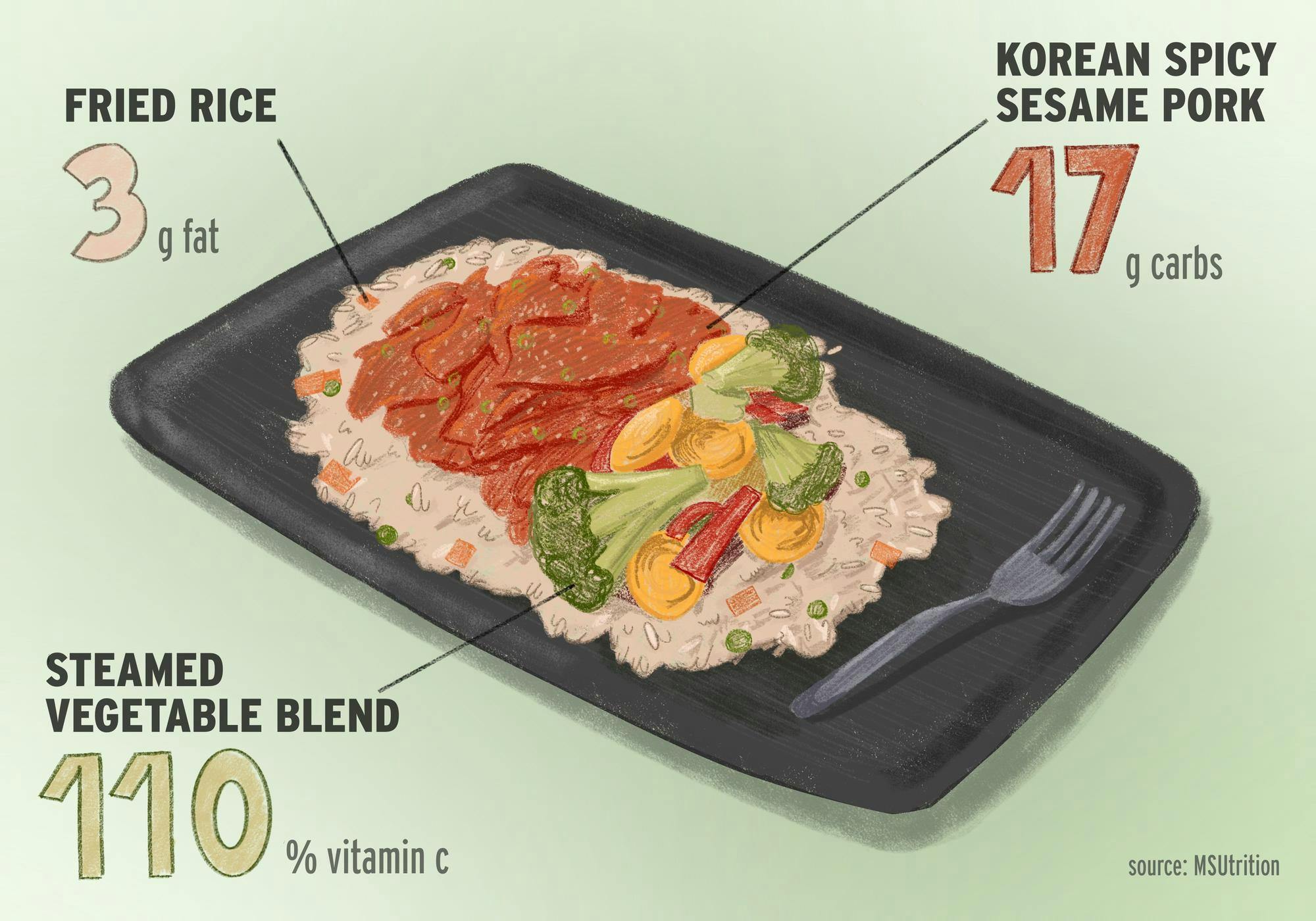College life gives way to newly found independence. Many students find themselves maintaining the balance of juggling classes and academic pressures. It can become fairly easy to forget the importance of a balanced diet and what role it can play in a student's overall success and health.
Michigan State University dining halls are working to combat this.
Nutrition is important among all individuals because it helps support boosted energy levels, immune health and enhances quality of life. Among college students, nutrition can directly impact academic performance and cognitive functions.
"Research shows those who are eating competent have better diets, better physical self-acceptance, stable body weights and (are) more active, sleep longer and better," nutritionist with the University Health and Wellbeing Health Services Abby Richey said.
With the help of MSU dining halls, which are known for their variety of foods, students are able to establish long-term healthy eating habits based on nourishing and convenient meals. Since this is the first time that many students get to control their own diet, they are dependent on dining halls to provide options for them.
"Nutrition is very important, we do have a responsibility to provide healthy, nutritious options," Bryan Latz, Executive Chef for residential dining at MSU, said. "The goal is to always provide these options."
MSU dining halls work with a nutritionist and dietitian who review all of the menus to ensure student meals are healthy. Dining halls participate in four-week rotations to help prevent boredom with the menu options. Each dining hall also has an all organic self-serving salad bar, featuring vegetables grown at MSU.
"I think there's a really big variety of options, which I like," undecided freshman Marlow Brege said. "My friends at other colleges don't have as many options."
By prioritizing nutrition now, college students can avoid chronic diseases or the creation of bad eating habits.
"College is a great time to build a strong foundation for their eating habits," Richey said. "Students can start on that now by taking the time to provide meals that support their bodies."
Another nutritional resource is the EVERYbody Project, a free on-campus program for undergraduate students. It aims to address the ways that cultural appearance norms excluded individuals with diverse identities and how to challenge these appearance ideals. There will be in-person and zoom sessions beginning the week of Oct. 14, which students can register for online.
Nutrition-focused dining halls and extra programs for students help them be more mindful about eating healthy while maintaining a body positive mindset.
"When I go (to the dining halls) it’s beneficial and it fits my needs," kinesiology junior Jordan Ways said. "I would say the food is nutritional."
Support student media!
Please consider donating to The State News and help fund the future of journalism.
Discussion
Share and discuss “How nutrition in dining halls fuels success inside and outside the classroom” on social media.







